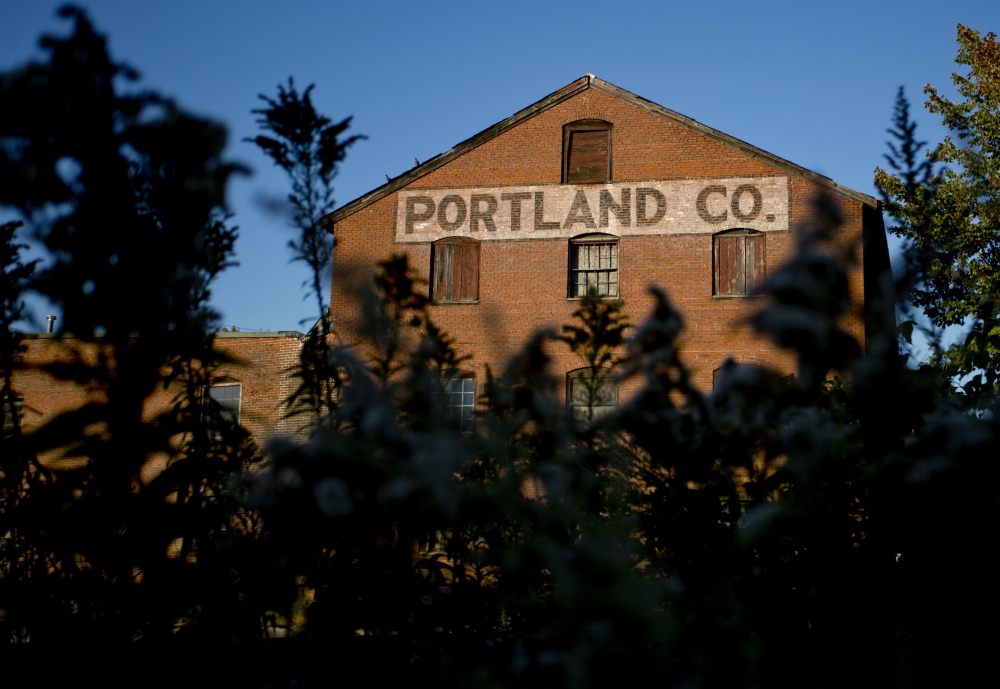The Portland City Council will meet Monday night facing a threat.
Developer CPB2 has requested a zone change that would permit mixed-use development on the old Portland Co. property, allowing them to bring in housing, shops and offices in what is currently in an industrial zone.
A group calling itself Save the Soul of Portland opposes the zone change and has already begun gathering signatures to undo whatever the City Council does June 1. The council can’t stop that, but it should not let the threat of a referendum stop them from doing the right thing.
In this case, the right thing is approving the zone change. A full development of the derelict site would change it and an important part of the city for generations to come. Putting the right land use restrictions on the property before there is a plan is the best way to insure that it is developed responsibly.
Objection to the prosed development follows two main arguments. One is that a development would spoil a sweeping view of the working waterfront, and the other is that the developers are being overly secretive about their plan. Both sound troubling in the abstract, but don’t hold up under scrutiny.
There is no question that the view of the waterfront from Fore Street is valuable, which is why a smart developer would not destroy it. The proposed zoning calls for 50-foot view corridors at the ends of existing streets. Views and access to the water would be a key part of any sensible business plan. They could not wall off the entire view, and if they could, why would they?
The process argument is even less persuasive. The zone change has been called “a blank check” for developers, who do not have to show any specific plans before getting approval. If that’s true, every line of the zoning code is a blank check.
Land is almost always zoned first and developed later. It’s up to the city to decide what uses make sense for a piece of property, and up to private sector developers to determine the best way to make the most out of a site.
The Portland Co., a former locomotive factory, is currently zoned for industrial use and it’s mostly vacant because there is less demand for heavy industry than there was in the 19th century. Considering the kind of city Portland has become, it makes sense to accommodate the uses that are in demand, especially housing and commercial uses.
That does not mean that developers should be allowed to build whatever they want wherever they want, but it does mean that rezoning makes sense.
Whenever a new development comes under attack by a neighborhood group you can bet on hearing the refrain “We’re not anti-development. We’re just opposed to this development.”
At some point, not-in-my-backyard groups should take responsibility for the collective result of their actions. In this case it means fewer jobs, fewer housing units, higher housing prices and more stress on existing taxpayers.
That’s a high price to pay for part of a view that might be disrupted.
The City Council should speak up for the whole city and approve this zoning change, regardless of the threat.
Copy the Story LinkSend questions/comments to the editors.



Success. Please wait for the page to reload. If the page does not reload within 5 seconds, please refresh the page.
Enter your email and password to access comments.
Hi, to comment on stories you must . This profile is in addition to your subscription and website login.
Already have a commenting profile? .
Invalid username/password.
Please check your email to confirm and complete your registration.
Only subscribers are eligible to post comments. Please subscribe or login first for digital access. Here’s why.
Use the form below to reset your password. When you've submitted your account email, we will send an email with a reset code.